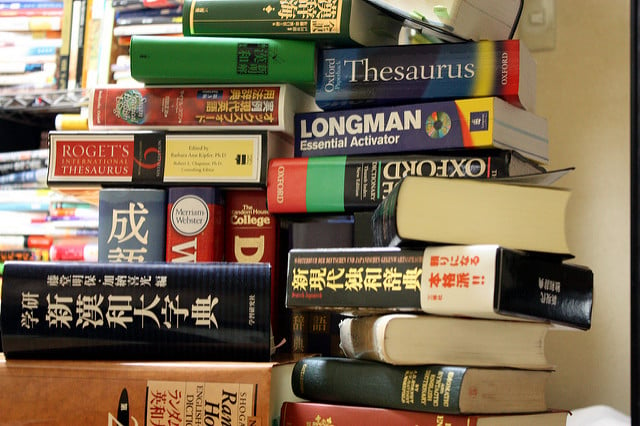Does Being Multilingual Make You Happier?
Photo via Flickr
As a speaker of multiple languages, I admit to soaking up every article I read on the benefits of being bilingual and multilingual with a smug smile on my face. While I am by no means one of those gifted polyglots that can speak 11 languages fluently, I am very proud of being comfortable in three languages (with two other languages abandoned at a basic stage). So, when I read that headline: “The more languages we speak the merrier we all are,” I instantly nodded my head in agreement.
I was surprised when reading it to see that the base for the article was a study that looked at the negative effect of being bilingual. The research found that monolinguists have a “metacognitive advantage” over bilingual people. This advantage makes them better at monitoring their own performance. In the study, bilingual participants were less aware of when they make a mistake or not. In other words, those fluent in two or more languages tend to be less accurate at judging their own achievements.
Looking at my own experiences, I see how this can be true. After initially stressing about how correctly I was speaking in my second and third language (I am a bit of a stickler for grammar in English, surprise surprise), I eventually just had to let go of this and focus on speaking. When you’re switching between languages, the basic task of communicating your meaning is more important than how you’re communicating it. You stop obsessing over nailing every part of speech, since, let’s face it, when there are multiple languages competing for attention, perfection seems an impossible task. You quickly end up at the point where you no longer notice (or care) about every mistake.
But is this really a bad thing? I certainly don’t think so. Nor are the wider consequences of this bilingual disadvantage. The benefits, after all, are so far-reaching that they overshadow this small metacognitive disadvantage.
All this begs the question, what does this have to do with happiness?
The author of the article in question points out that this disadvantage hasn’t lessened his own experience of being bilingual. For him, crossing lingual lines has opened new opportunities that have led to much personal happiness: a wife and a new life abroad!

Photo via Flickr
Of course, that’s one man’s experience, but happiness is not a science or a formula, so what we’re left with is anecdotes. So, speaking from personal experience, here’s why I believe that being multilingual does make you happier.
More languages, more connections
If you derive happiness from connecting with other human beings, learning additional languages is a big potential source for more joy. Being able to communicate with people of other languages lays the foundations for forging new friendships and relationships.
Your soulmate, life partner, BFF, or a group of potential lifelong friends could be waiting for you in another language. There is a world of new connections available when you get out of your linguistic (and geographic) bubble.
It gives you confidence
The romance of speaking a new language aside, actually learning to speak in another tongue is a tough task. It takes a lot of work for most of us to master a new language. But once you do, it’s the most satisfying feeling, and fuels your confidence.
After the initial struggle, when you understand native speakers and have a successful conversation, it’s an incredible confidence boost. Knowing you’ve gone from zero to being able to communicate affirms your ability to learn and gives you more confidence to conquer new things.
New opportunities
All of our reasons for learning another language are different. Perhaps you want more job opportunities, or you want to know the language of your ancestors, you have a foreign boyfriend/girlfriend or you want to travel.
Whatever the reason, this new language will open doors for you. You can travel far off the beaten tourist path without fear of language barriers. You could apply for that UN position, knowing you fulfill the language requirement. Becoming bilingual can be one of the stepping stones towards your goals. More languages, more opportunities to do the things that make you happy.
Does it all sound too good to be true? Maybe it is, for you. For me, each new language learnt has brought me new happiness. So like the author who declared more languages make us merrier, I believe that any minor disadvantages to being bilingual fade in comparison to the huge happiness that language can bring us.



